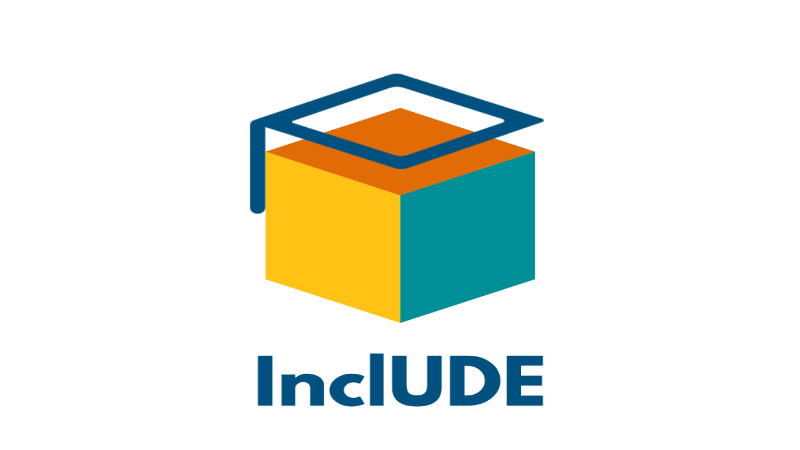Click the + to read more about projects completed by our Faculty.
Digital Teaching Literacy
In March 2020, COVID-19 took the world by surprise, and citizens were forced into a global lockdown with almost no time to prepare, and with no precedent in recent years. Schools moved immediately to online teaching for the duration of the lockdown, and in some countries teachers are offering both in-person and online learning, to support pupils who still have to quarantine.
Having rushed to transfer their teaching online when the spring 2020 lockdown started, teachers across the world have continued to teach under immense pressure. As key workers, teachers have hardly had a chance to take a breath, let alone spend time retraining or developing skills to help with the move to online teaching.
DigiTeaL therefore has four objectives:
- Identify training needs and gaps around teachers’ online teaching capability in the partner countries.
- Create a practical, step-by-step resource that guides teachers through the technical elements of setting up safe online teaching, using identified best practice, and giving them confidence if they have mainly focused on face-to-face teaching in the past.
- Inform teachers about the non-technical classroom management issues associated with online teaching, and provide solutions.
- Make teachers aware of an internationally recognised online assessment system that they can adapt for their students in any subject.
These objectives will be reached through the production of 4 intellectual outputs:
- IO1 – new survey to expand the existing MeLDE framework for teacher digital preparation, specifically around blended learning and online teaching technology.
- IO2 – User guide of the process teachers would need to follow in order to set up an Open Badge for online assessment that can give pupils a recognised and transferrable qualification.
- IO3 - Guidelines and best practice for transforming planned face-to-face teaching into online events (e.g. technological, practical tips, synchronous and asynchronous content
Partners
University of Wolverhampton (United Kingdom) (Project Coordinator)
Emphasys Centre (Cyprus)
National Center For Scientific Research "Demokritos" (Greece)
Arbeitskreis Ostviertel e.V. (Germany)
Universitatea din București (Romania)
Start: 1 June 2021
End: 30 November 2022
Duration: 18 months
Funding Stream: Erasmus+ Strategic Partnership
UoW grant: €180,815
Project Number: 2020-1-UK01-KA226-SCH-094429
Project Website: https://digitealproject.eu/

Inclusive University Digital Education
While HE organisations have a stated mission to be inclusive and accessible places, anecdotal evidence from both students and teachers suggests that this is not always the case. Furthermore, awareness of accessibility and support strategies can tend to be in "silos" of knowledge such as equality and diversity units, student support centres, student enabling centres, faculty representatives for diversity and inclusion. HE lecturers, already under pressure to transfer their teaching materials and methodologies from classroom-based to online
within a short timescale, have often had to focus on online teaching which suits the majority of their students. They may not consider or take into account additional accessibility options unless they are formally asked to do so by an organisational policy or a student's specific request for accommodation.
InclUDE therefore has three objectives:
- Provide an easy way to search and access free and open tools for online accessibility.
- Create a practical, step-by-step resource that guides lecturers through setting up online teaching sessions that are accessible to a wide range of students.
- Create guidelines of considerations that can help lecturers to make their teaching scheduling and practice more inclusive.
These objectives will be reached through the production of 3 intellectual outputs:
- IO1: Web repository of existing digital access tools (e.g. online transcription tools, website visibility checks for users with sight loss…);
- IO2: Guidelines for accessible online teaching – how to make teaching via e.g. Zoom or Teams accessible to specific groups, for example: D/deaf students; students with sight loss; autistic students; students with mental health issues; economically disadvantaged students with limited access to technology/wifi (including Roma);
- IO3: Guidelines for inclusive online teaching – looking at considerations for teaching practice that don't fall under the category of legally mandated accommodations, but can facilitate attendance and participation for students with a range of challenges.
Partners
University of Wolverhampton (United Kingdom) (Project Coordinator)
European Association of Service Providers for Persons with Disabilities (Belgium)
Universitaet Klagenfurt (Austria)
Universite Rennes 2 (France)
Start: 30 June 2021
End: 29 September 2022
Duration: 15 months
Funding Stream: Erasmus+ Strategic Partnership
UoW grant: €181,575
Project Number: 2020-1-UK01-KA226-HE-094428
Project Website: InclUDE website

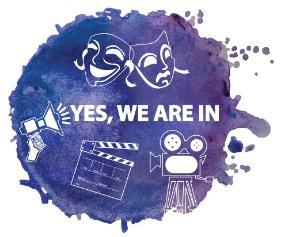
This project brought together people with a range of physical and learning disabilities from several partner countries, so that they could create a performance through livestreaming.
By using the techniques of international mobility events as group formation, the intercultural skills of the participants with disabilities and their arts facilitators were improved: through team building in an international group of actors/actresses during two 5-day workshops and in-between contact using social media and livestreaming.
Digital skills were improved through the intense interaction with social media as a 'group of friends from five countries'; working with livestreaming events, and the 'rehearsals’ that became artistic video conferences.
Although this project was affected by the Covid-19 pandemic, particularly as many of our participants were shielding, the connections and knowledge of livestreaming built up before the pandemic enabled the participants to stay connected.
View our video documentaries about the project on YouTube
Read our guidelines for livestreaming in theatre groups
Partners
Gc De Zeyp (Belgium) (Project Coordinator)
Trešnjevka Cultural Centre (Croatia)
University of Wolverhampton (United Kingdom)
ACCAC Global (Finland)
University of Atypical (United Kingdom)
Mediaraven (Belgium)
Start: 1 October 2018
End: 30 November 2021 (originally 21 March 2021)
Duration: 38 months (originally 30)
Funding Stream: Erasmus+ Strategic Partnership
UoW grant: €48,980
Project Number: 2018-1-BE02-KA204-046862
Project Website: yeswearein.eu


Health Research-Based Innovative Open Educational Resources and Tools for Lighting Design Students and Professionals (LIGHT4HEALTH) project will establish and deepen a strategic partnership for teaching health research methods and findings to lighting designers at graduate level.
LIGHT4HEALTH partnership brings together six internationally renowned institutions from the UK, Denmark, Germany, Sweden, Russia, and the US, to bring together their advanced research and teaching expertise on the intersection of lighting design and health research in a validated cross-disciplinary course offer of excellence, extended with rich and professionally produced open educational materials, and an online Virtual Lab platform aimed at accessibility and fostering implementation across Europe.
Various participants are considered for the pilots and beyond. Students from participating universities, enrolled in on-campus Lighting Design programmes including the released course, are direct end-users of the project outputs. Other participants who enroll on the online version of the course through the Virtual Lab or in replications across Europe will include all types of learners, educators, industry workers, and design practitioners. Four public events at national, EU, and international level will be the main activities of dissemination and communication for relevant stakeholders who are essential not only as the target audience, but also as users of the Virtual Lab, multipliers of the knowledge generated, and a source of valuable feedback.
The project will trigger processes and produce results that are likely to become self-sustaining and develop further, such as the LIGHT4HEALTH teaching community and the Virtual Lab. The project will help to prepare graduates for the lighting industry and other employers in Europe and around the world, thus contributing to making European economies more research-driven, knowledge-based, and competitive.
Partners
University of Wolverhampton: (United Kingdom) (Project Coordinator)
Aalborg Universitet: (Denmark)
Hochschule Wismar: (Germany)
Kungliga Tekniska Högskolan KTH/ Royal Institute of Technology KTH: (Sweden)
Itmo University: (Russian Federation)
Jefferson Horizon Research, LLC (United States)
Start: 01/10/2018
End: 31/08/2021
Duration: 35 months
Funding Stream: Erasmus+ Strategic Partnerships
Total grant: €429,062
Project Number: 2018-1-UK01-KA203-048246


Media Literacy in the Digitalised Era: Supporting Teachers through a whole-school approach
Digital advances have brought new challenges for Europe’s learners and teachers. Algorithms used by social media sites and news portals can be powerful amplifiers of bias or fake news, while data privacy has become a key concern in the digital society (evidenced by the new General Data Protection Regulation). EU citizens, above all young students, are vulnerable to cyberbullying and cyberharassment, predatory behaviour or disturbing online content. Everyday exposure to digital data, driven largely by inscrutable algorithms, creates clear risks and requires more than ever critical thinking and the ability to engage positively and competently in the digital environment.
The project's pioneering approach was to:
(1) develop pilot-test and evaluate a TOOLKIT which will support schools to establish a ‘WHOLE SCHOOL APPROACH’;
(2) strengthen teacher profiles and equip them with essential media literacy skills to deal with digital citizenship issues in their schools;
(3) provide teachers with 100+1 educational tools, resources and tools to upgrade the quality of available resources aiming to empower young students to become responsible, critical, global citizens of the digitalised and connected world we live in.
Partners:
University of Wolverhampton (United Kingdom) (Project Coordinator)
Emphasys Centre (Cyprus)
National Center For Scientific Research "Demokritos" (Greece)
Antenna (Cyprus)
Arbeitskreis Ostviertel e.V. (Germany)
Start: 01 September 2018
End: 31 August 2021
Duration: 36 months
Funding stream: Erasmus+ and Strategic Partnerships
Project number: 2018-1-UK01-KA201-048041
Total grant: €329,975
Project website: http://meldeproject.eu/

The main aim of IT(S) is to develop new audience in theatres, mainstreaming inclusive practices for visually and hearing impaired persons during theatre performances at European Level.
Specific Objectives:
- share good practices for Inclusive Theater between experts through formal and non formal training activities;
- mainstream and scale-up accessible theaters in Countries where support services for visually and hearing impaired persons are provided;
- test and validate pilot actions for inclusive services in Theatres of 6 Countries;
- develop and deploy a Europe-wide Awareness Raising Campaign about the needs of visually and/or hearing impaired persons in theatres, stimulating inclusive policies and community engagement;
- disseminate the project's findings and the EU support to its implementation, ensuring a long-term sustainability.
The project will involve cultural operators, audio describers, audio translators and audio description service providers; subtitlers, translators in signs language and similar services providers; deaf and hearing impaired people (targeted audience); blind and visually impaired people (targeted audience); policy-makers; media and journalists; general public e local communities.
The Outcomes produced are the following:
- ER1. Improved competences and skills of audio describers, audio translators, subtitlers and translators in signs language;
- ER2. Improved competences of cultural operators (public and private) in management of inclusive practices for hearing and visual impaired audience;
- ER3. New audience developed in the involved theaters, thanks to the empowering of inclusive services;
- ER4. Awareness raised among the regular theater audience and policy-makers about policies and practices of social inclusion through culture.
- ER5. Raised awareness and interest on project's activities and EU Funding Programmes.
Partners
- ATER Associazione Teatrale Emilia Romagna (Italy) (Project coordinator)
- Empresa de Gestao de Equipamentos e Animacao Cultural (Portugal)
- Fundación Caja Granada (Spain)
- Plavo Pozoriste - Pozorisna Laboratorija (Serbia)
- Theatro Atomon Me Anapiria (Greece)
- University of Wolverhampton (United Kingdom)
Start: 1 September 2019
End: 28 February 2022
Duration: 30 months
Funding stream: Creative Europe large-scale cooperation project
Project number: 607353

Signed Safety at Work
SSaW aimed to produce a sign vocabulary (based on International Sign) of around 200 essential Health and Safety (H&S) words and phrases (in multilingual glossary and e-learning resource format), to facilitate workplace communication between all employees, whatever their hearing and language ability. We expected that two target groups who will particularly benefit from improved workplace communication are D/deaf/hearing-impaired (D/deaf/HI) workers, and migrant workers.
This objective was formulated around known needs, based on existing research policy, and is strongly aligned with Erasmus+ objectives and priorities.
The European Framework Directive 89/391 on Safety and Health at Work is a milestone in improving safety and health at work, which guarantees minimum safety and health requirements throughout Europe. Employers are therefore strongly motivated to ensure their employees' H&S in the workplace, and an easy way for all employees to communicate urgent messages, particularly in high-risk situations, will help to do this. It will also reduce employer's concerns about workplace communication issues, which should encourage an increase in the employment of D/deaf/HI people, and migrants, (acting on the horizontal priority of social inclusion). Furthermore, according to the Health and Safety Executive, manufacturing and construction are the industries with the highest rates of industrial deafness cases, and so employers who do not have systems in place for D/deaf/HI employees are likely to lose more experienced workers whose hearing becomes impaired over time. This further relates to the aging of the workforce, an issue raised in the EC's Strategic Framework on Health and Safety at Work 2014-2020.
University of Wolverhampton (United Kingdom) (Project Coordinator)
Universitaet Klagenfurt (Austria)
Istituto Statale Sordi Di Roma (Italy)
Searchlighter Services Ltd (United Kingdom)
Bellyfeel Media Limited (United Kingdom)
Asociacion Empresarial De Investigacion Centro Tecnologico Del Muebley La Madera De La Region De Murcia (CETEM) (Spain)
Vyzkumny ustav bezpecnosti prace, v.v.i. (Czech Republic)
Start: 1 November 2018
End: 30 April 2021
Duration: 30 months
Funding Stream: Erasmus+ Strategic Partnership
Total grant: €361,901
Project Number: 2018-1-UK01-KA202-048037
Website: http://www.signedsafety.eu/

Brexit and Deportations: towards a comprehensive and transnational understanding of a new system targeting EU citizens
In this project, the Fellow, Dr Agnieszka Radziwinowiczówna, researched the implementation of the new UK deportation system concerning EU nationals. With Brexit and the abandonment of the free movement and residence principle, the UK will define its new immigration policy concerning EU nationals.
The new immigration policies will aim to control and circumscribe the mobility of the citizens of the EU member states, currently free to travel, live and work in the UK. They may also be returned or deported only under very specific circumstances. Following Brexit, those who will not comply with the new regulations will become deportable.
The fellow proposed a comprehensive approach to the UK deportation regime, taking into account its various components: (1) immigration policies, (2) agencies that enforce them, (3) public debate that accompanies changes in migration policies and their implementation, (4) migrants that become deportable and are deported, as well as (5) return migrants and stayers back in sending countries who consider migrating to the UK and who adjust their (im)mobility strategies according to, or resisting, migration policies.
The project assumed that the deportation regime is a transnational phenomenon, since it concerns not only people in migrant-receiving countries, but also in migrant-sending counties. The research offers an analysis of the largest migrant group in the UK, the Poles. The case of the Polish migrants will offer an insight into how the transnational UK deportation regime becomes rooted among migrants and develops back in their hometown communities.
The project drew upon interdisciplinary qualitative methodologies, including multi-sited ethnography, Critical Discourse Analysis of media, and legal analysis. Its outcomes have reached EU, UK and Polish policy makers, influential think tanks, the academic community and the general public.
Start: 1 November 2018
End: 31 October 2020
Funding stream: Marie Sklodowska-Curie Individual Fellowship
Total grant:
More information: Prof John Roberts and Dr Francesco Paradiso
This project has received funding from the European Union’s Horizon 2020 research and innovation programme under the Marie Skłodowska-Curie grant agreement No 786490
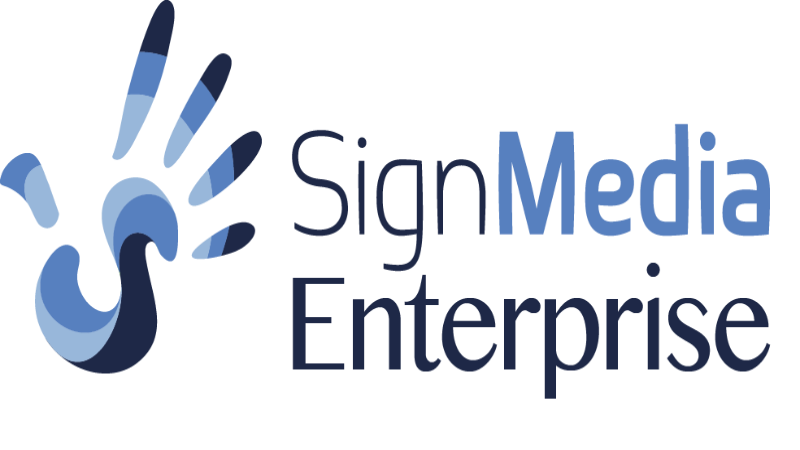
Sign Media Enterprise
The project is aimed at supporting deaf and hard of hearing professionals who are currently self-employed and those who are considering Media as a route to employment.
The project includes the creation and implementation of an app specifically tailored to secure instant access to sign language and technical information whenever the target user encounters it.
An online training course will be developed so as to allow the deaf and hard of hearing to gain and enhance their skills in the national written language, as well as the national sign language.
As part of the project, a number of methodologies will be implemented in order to develop the design of the app and complete the actual technical development and functionality, including the creation of signed videos.
Partners
- University of Wolverhampton (United Kingdom) (Project coordinator)
- Bellyfeel Media Limited (United Kingdom)
- Universitaet Klagenfurt (Austria)
- Istituto dei Sordi di Torino (Italy)
- Alba scs (Italy)
Start: 01 September 2017
End: 31 August 2020
Duration: 36 months
Funding stream: Erasmus+ Strategic Partnerships
Total grant: €311,311
Project number: 2017-1-UK01-KA202-036682
More information: Ms Helen Sargeant
View our Sign Media Enterprise Privacy Policy Notice (PDF)
Read about the project in the European Project Results Platform
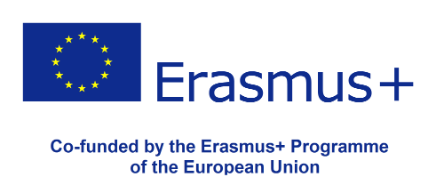
Sign Media Vocational Training
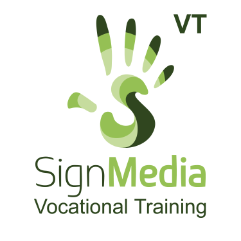
The project is aimed at supporting deaf and hard of hearing professionals who are currently self-employed and those who are considering Media as a route to employment.
The project includes the creation of a French glossary in order to enhance the knowledge of sign language, which importance is still not well acknowledged. A series of inspirational media trainings will also be delivered. They will be focused on giving participants a series of principles, strategies and techniques to work smarter and more efficiently in the new paradigms of media production.
Support will be given to deaf and hard of hearing professionals in order to boost their employability in the media sector by removing barriers to language, as well as the promotion of mobility and collaboration within an active European deaf and hard of hearing community.
Partners
- University of Wolverhampton (United Kingdom) (Project coordinator)
- Bellyfeel Media Limited (United Kingdom)
- Universitaet Klagenfurt (Austria)
- Istituto dei Sordi di Torino (Italy)
- Alba scs (Italy)
- Université Rennes II (France)
Start: 01 September 2017
End: 31 August 2020
Duration: 36 months
Funding stream: Erasmus+ Strategic Partnerships
Total grant: €275,215
Project number: 2017-1-UK01-KA202-036690
More information: Ms Helen Sargeant
View our Sign Media Vocational Training Privacy Policy Notice (PDF)
Read about the project in the European Project Results Platform
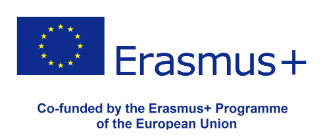
Sign Media SMART
Sign Media Smart developed a multilingual glossary for media-related terminology. This glossary is available on mobile platforms, so that it can be used on the move; in studio, on location, in post production and in the office where it helps to enhance communication.
Languages of the glossary:
- BSL / English,
- ÖGS / German,
- LIS / Italian,
- Swedish SL and Swedish.
The glossary includes signed videos and written texts, specialised terminology, explanations, and illustrations.
Who can use the app?
- Individuals already working in the media industry (who want to enhance their lexicon),
- Individuals wishing to develop a career in media,
- Hearing co-workers of deaf individuals working in the media industry,
- Students of media-related fields,
- Deaf individuals, who’d like to enhance their vocabulary (and/or want to learn specialised vocabulary),
- Hearing individuals, who’d like to learn specialised vocabulary,
- Interpreters,
- Teachers
Start: October 2013
End: September 2015
More information: Ms Helen Sargeant
View our Sign Media SMART Privacy Policy Notice (PDF 111K, Downloads file)
Sign MEDIA
The objective of SignMedia was to develop an interactive learning resource that teaches elements of written English through sign language. Users encounter a flexible and engaging learning environment, combining elements of video, animation and game-play.
All learning activities are designed around authentic media documentation taken from the production process, such as Location Risk Assessments, Crew and Actors Call Sheets and Scripts, enabling Deaf users to develop language skills that are directly transferrable to their work environment.
A European collaboration, the experienced project consortium of Deaf and hearing professionals offered expertise in e-learning, media, Deaf education, sign language and linguistics:
- University of Wolverhampton (United Kingdom) (Project coordinator)
- Klagenfurt University (Austria),
- University of Turin (Italy) and
- Mutt & Jeff Pictures Ltd (UK).
Start: November 2010
End: October 2012
Funding Stream: Lifelong Learning Programme
More information: Ms Helen Sargeant

View our Sign Media Privacy Policy Notice (PDF 105K, Downloads file)

This project aims to help people with dementia engage in social contexts to improve psychosocial wellbeing. People who are affected by Alzheimer’s disease or other dementias often face cognitive, behavioural and psychosocial difficulties, including impairment and degeneration of memory and of perceptions of identity. In a social context, this can cause difficulties of recognizing, relating to and empathising with other people. These difficulties often pose a challenge for engaging socially, reinforcing their effects and reducing personal well-being.
Design can offer novel ways of complementing existing care approaches to empower people with dementia in everyday social situations. Utilising the concept of mindful design, we will investigate innovative design solutions to enable self empowerment and confidence building of people living with dementia. We will specifically focus on two areas: personal difficulties with social interaction and environmental influences on social engagement. In these two contexts, we will study how personal, wearable designs can help mediate perceptions of identity and emotion management; and how environmental aspects can reduce feelings of information overload and instill feelings of self-empowerment and control.
The outcomes and benefits of the project will include: the development of new uses of design for helping people with dementia to engage socially and improve subjective well-being; the presentation of a robust methodological co-design framework for the development and evaluation of the designs in dementia care settings; the development of a holistic mindful model of designing and of a model for mindful care for social engagement for people with dementia; policy recommendations for the inclusion of design within dementia care.
This groundbreaking project will be enabled through an innovative consortium of academic and non-academic partners that combines research in product and environmental design, ICT, and dementia care.
Partners
- University of Wolverhampton, UK (coordinator)
- Nottinghamshire Healthcare NHS Trust, UK
- Alzheimer Europe ASBL, LU
- Université du Luxembourg, LU
- Universiteit Twente, NL
- Zorggroep Sint Maarten, NL
- Panton BV, NL
- Technische Universitaet Dresden, DE
- Alexianer St. Hedwig Kliniken Berlin GmbH, DE
- Fundació Eurecat, ES
- Pibarquitecturasix SLP, ES
- Fundación INTRAS, ES
- Queensland University of Technology, Australia
Start: 1 March 2016
End: 28 February 2020
Duration: 48 months
Funding stream: Horizon 2020 Research and Innovation Staff Exchange (RISE)
Total grant: €531,000
Project number: 691001-MinD
Project website: http://designingfordementia.eu/
More information: Dr Kristina Niedderer
This project has received funding from the European Union’s Horizon 2020 research and innovation programme under the Marie Skłodowska-Curie grant agreement No 691001
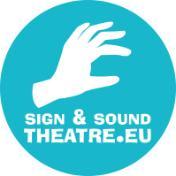
"Accessible and inclusive culture" is one of Creative Europe's key aims. The EC's European Disability Strategy 2010-2020 aims to "remove barriers to equal participation in...leisure activities".
This project addressed both by removing "attitudinal barriers", exploring new ways to produce inclusive arts, for inclusive audiences. It aimed to lead to artists and spectators, with(out) disabilities, enjoying the same theatre experience at the same time, and without one artist/audience being favored over another. It worked on a Europe-wide problem around lack of inclusion in the arts.
It did this through 3 strands of activity:
1) Test ways of cooperation between cultural centres and service providers to work together to engage a range of audiences (with(out) disabilities) in inclusive art performances.
2) Encourage deaf and hearing artists to collaborate through piloting ((play: guardians of dreams) a new theatre technique - Innovative Bilingual Theatre (IBT) - using integrated sign and spoken language.
3) Trial ways to adapt IBT for other different needs and media, e.g. blind, learning difficulties.
The project provided capacity building and transnational mobility through workshops in three areas:
1) For cultural and service provider organisations, to learn how to engage audiences with different needs in the arts (theatre as a trial);
2) For artistic directors, to learn how to use IBT as a tool for developing inclusive theatre performances (or adapt it to other media and needs);
3) For artists, to learn how to perform using IBT in collaboration between artists with different needs (e.g. hearing and deaf).
The pilot IBT performance was a play produced by 6 partner countries, and premiered and toured in each.
The project concluded with a conference in Brussels, (International Deaf Week, 9/19). This included results and feedback from the workshops and performances, and presented the guidelines and the recommendations for European policy makers.
Partners
- GC De Zeyp (Belgium) (Project coordinator)
- Esteetön taide ja kulttuuri ry (Finland)
- University of Wolverhampton (United Kingdom)
- Vo'Arte (Portugal)
- Centar za kulturu Tresnjevka (Croatia)
- Europees Netwerk Culturele Centra IVZW (Belgium)
- European Association of Service Providers for Persons with Disabilities (Belgium)
- Udruga Kazaliste, Vizualne Umjetnosti i Kultura Gluhih Dlan (Croatia)
- Teatar Tsvete (Bulgaria)
Start: 1 July 2017
End: 31 December 2019
Duration: 30 months
Funding stream: Creative Europe small-scale cooperation project
Project number: 583692
Project website: http://signandsoundtheatre.eu
View our Privacy Policy Notice (PDF)
Epistemological Gaps in Cultural Theories of the Soviet East and Democratic West in the 1960s and 1970s
This project is a Marie Sklodowska-Curie Individual Fellowship. The fellow is concerned with opening out the period of Brezhnev’s Thaw in the Soviet Union in the 1960s and 1970s, to a renewed scrutiny. Covering art theory, cultural theory, philosophy, and political philosophy, the research will draw on both key and forgotten works, such as those by Evald Ilyenkov, Yuri Davidov, Lev Vigotsky, Georg Lukacs and Mikhail Lifshitz, as well as the critical legacy of Moscow conceptual art in order to better understand the dynamics of Soviet culture and its influence on contemporary culture, politics and art in Europe. This fellowship will challenge the largely negative perception of the cultural and philosophical achievements of this historical period. By using a cross-disciplinary approach, the fellow will demonstrate how the Brezhnev period, contrary to received views, produced a rich array of heterodox social theories, critical thinking, and cultural practices, that are comparable to Western emancipatory thinking and cultural theory of the time, but, remain, in quality, ambition and character, very different to their Western counterparts. The fellowship aims, then, to transform the conventional approach to post-socialist studies within the European academic context, in order to support and enhance a much needed cultural dialogue between the European Union and Russia.
Start: 7 November 2017
End: 6 November 2019
Duration: 24 months
Funding stream: Marie Sklodowska-Curie Individual Fellowship
Project number: 752417
More information: Prof John Roberts and Dr Francesco Paradiso
This project has received funding from the European Union’s Horizon 2020 research and innovation programme under the Marie Skłodowska-Curie grant agreement No 752417

New Employability Skills and Business Creation in the Audiodescription and Subtitling Sector
The project aimed to enhance the status and professional role of audiodescribers and subtitlers, who are to be considered as proper entrepreneurs and capable of opening up new business ideas and opportunities. Participants accessed training workshops to boost their enterprise skills and developed knowledge on how to promote the business of audiodescription and subtitling among theatres, museums and cinemas.
The project included the creation of a practical start-up handbook for entrepreneurs in field of cultural accessibility (focus on audio description and subtitling for visually- and hearing-impaired people). This was a unique transnational product containing all steps required to launch a new business.
The development of a web platform offered participants the opportunity to be supported in the identification of the winning business model which would enable them to start up their own business career.
Partners
- University of Wolverhampton (United Kingdom) (Project coordinator)
- Centro Diego Fabbri (Italy)
- Producciones Audiosigno SRLU (Spain)
- SASA INKUBATOR, D.O.O. (Slovenia)
- Centrum Kultury Wrocław-Zachód (Poland)
- ARGO (Italy)
Start: 01 November 2017
End: 31 October 2019
Duration: 24 months
Funding stream: Erasmus + Strategic Partnerships
Total grant: €241,640
Project number: 2017-1-UK01-KA204-036688
View our Privacy Policy Notice CASTLE (PDF)
Read about the project in the European Project Results Platform
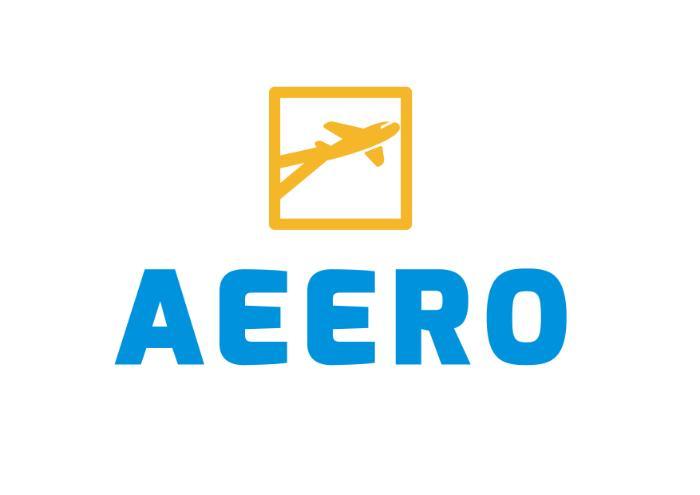
Aerospace Engineering ECVET Resources Online
AEERO developed a high-quality mobile and online learning platform. The platform hosted employer-led instructional video/ interactive artefacts which were created during the project and used for the vocational training of aerospace manufacturing apprentices predominantly, and established workers.
The platform and supporting materials provided a VET-based model for sector apprenticeships. This is vital to meet the needs of the industry (skills shortages, competition etc.) and provide skilled workers. It also provided opportunities for existing workers to upskill.
Ultimately, AEERO was committed to facilitating continuous and lifelong access to high-quality VET for space industry workers from all demographics. This positively contributed to the competitiveness of European-based aerospace industries who operate in a growing, yet challenging global market. AEERO met those specific needs of the industry.
Partners
- University of Wolverhampton (United Kingdom) (Project coordinator)
- Alba Società Cooperativa Sociale a r.l. (Italy)
- Bellyfeel Media Limited (UK)
- INOVAMAIS - Servicos de consultadoria em inovacao tecnologica S.A. (Portugal)
- Filmesdamente (Portugal)
- FOR DI PAOLO TUBINO & C. SAS (Italy)
- In-Comm Training and Business Services Limited (UK)
Start: 01 September 2016
End: 31 August 2019
Duration: 36 months
Funding stream: Erasmus+ Strategic Partnerships
Project number: 2016-1-UK01-KA202-024658
Total grant: €389,603
Project website: http://aeero.eu
View our AEERO Privacy Policy Notice (PDF)
Read about the project in the European Project Results Platform

British Women's Travel Writing, 1780-1840: Communities of Authorship
This project, funded by the British Academy, aimed to restore visibility to 139 women who published travel books as authors, co-authors, contributors, letterpress writers, editors, and translators during a period in which women’s travel writing became established in Britain and Ireland.
Original biographical research on these authors contributed to our knowledge of the conditions of publishing, networking, and support that helped women become transformative presences in a male-dominated genre.
The research built upon and augmented the Database of Women’s Travel Writing (DWTW), launched at Chawton House Library in July 2014, which aims to provide accurate bibliographical entries for all books of travel by women published in Britain and Ireland during this period.
This final phase of the project produced a biographical dictionary of women travel writers, expanded the database to include new categories of collaborative authorship, and enhanced the user interface to maximise open access to the research.
***You can access and search the database***
Start: 1 May 2016
End: 31 January 2018
Duration: 21 months
Funding stream: British Academy Small Research Grant
Project number: SG151709
More information: Dr Ben Colbert
Maker-centric: building place-based, co-making communities
This AHRC-funded project worked reflexively with groups who use the applied arts in an amateur context, to co-create and assess two distinct, contrasting routes to enhanced civic participation and the challenges they involve. Group co-reflection concerning the challenges participants face was undertaken at two key points (June & October) and Community Ambassadors kept reflexive diaries/blogs logging their perspectives on the challenges and benefits of participant involvement in purposeful collective making.
Working with minority groups such as the South Asian women's Textile group at Soho House Museum (SHM) and new groups accessed through partner organisation Creative Black Country (CBC), the project further explored the potential for collaborative making to address difference and inequalities of access to engagement by building trust and cooperation through purposeful making: the shared enthusiasm of communities of interest, for instance, and/or by providing a safe space to address difference, promote reciprocity, reflection and critical thinking
Start: 1 February 2017
End: 30 November 2017
Duration: 10 months
Funding stream: AHRC Follow-on Funding: Impact and Engagement
Project number: AH/P009638/1
The Photographic Archive of the Express & Star: a History of the Black Country and South Staffordshire
The Express & Star is an evening newspaper based in Wolverhampton with regional offices in Cannock, Dudley, Kidderminster, Stafford and Sandwell. The paper is published by The Midland News Association Ltd, henceforth referred to as “the MNA”, a number of different editions covering the Black Country, Birmingham and areas of the wider West Midlands from Stafford to Kidderminster.
The newspaper has a private photographic collection estimated at c.1 million images (estimated c.700,000 copyright of Express & Star from a sample counted in 2011); an amassed collection of photographic prints, with the associated news article clipping glued on the reverse of the majority, dating from c.1935 to 1995.
As a daily record of life in the Black Country over 100 years, the collection has significant historical and social relevance for the West Midlands and the nation. Spanning the majority of the 20th Century, the collection documents major shifts in society and landscape resultant of changes in politics, ideology, economics, culture, immigration, science, technology, medicine and more. These shifts are documented from the perspective of ‘ordinary’ people. Examples can be seen via Twitter (@ESPhotoArchive) and www.Facebook.com/photoarchivebid and you can show your support via the Friends Group http://www.expressandstar.com/photobid/
The Express & Star, Wolverhampton City Archives, under the auspices of WAVE: the Museums and Galleries of Wolverhampton (which is in turn governed by Wolverhampton City Council) and the University of Wolverhampton came together in a partnership c.2008 to preserve this collection and make it freely accessible to the public.
After our initial feedback from local residents, community groups, businesses and other organisations we successfully secured a development grant from the Heritage Lottery Fund (HLF) to develop the Second Round Delivery Phase.
App.t created an app to support target groups more likely to be unemployed in the current EU economy, and their trainers. It contained interactive training content which focused on developing business start-up skills based on the principles of social enterprise. Participants developed soft skills and work preparation skills to ultimately increase their employability and access to the labour market. The project aimed to make learning employability skills more attractive and accessible for people who favour modern social media technology tools like mobile phones in preference to historical learning and communication methods. Accessibility and recognition of learning was therefore at the heart of the project and was achieved, predominantly, although not exclusively, through the app format and possible accreditation/progression routes mapping.
The training content was been adapted and developed through an existing Leonardo Transfer of Innovation Project: SET4WORK (Social Enterprise Training for Work) led by UK-based Siawns Teg with partners from Lithuania, Italy, Slovakia, UK and Germany.
The main objectives were:
- Adapt the existing content to an app
- Identify informal/non-formal learning and match to formal qualification routes in partner countries
- Translate and adapt the existing content to the specific target groups of the new partners: Germany and Czech Republic and update in relation to UK and Lithuania partners to ensure relevance
- Design and develop an interactive app
- Map content to possible accreditation and progression routes for recognition of learning and employ the principles of ECVET
- Test and pilot the app
- Create supporting user guides for trainees and trainers
Partners
- University of Wolverhampton (United Kingdom) (Project coordinator)
- Siawns Teg Limited (United Kingdom)
- VsI GALVOCIUS (Lithuania)
- Volkshochschule im Landkreis Cham e.V. (Germany)
- FM Consulting s.r.o. (Czech Republic)
Start: 01 January 2015
End: 31 August 2017
Duration: 32 months
Funding stream: Erasmus+ Strategic Partnerships
Project number: 2014-1-UK01-KA202-001615
Project website: http://apptproject.eu/wp/ (no longer available)
Read about the project in the European Project Results Platform
Theatres for All
Across Europe there are some good practices but generally the level of accessibility of theatres to blind and partially sighted is very low. Millions of EU citizens are completely excluded from cultural life. There is a real need to significantly improve the opportunities for visually impaired people to experience art and culture through Audio description. It must be also underlined that an average of 1 in 30 Europeans experience sight loss (WHO) and the number of people in EU with sight loss is set to increase in the future (demographic shifts towards the predominance of older age group, incidence of obesity and diabetes).
The Theatres for ALL project wanted to make local theatres accessible to people who are blind or visually impaired by encouraging local arts companies and theatres to integrate high quality services of audio description into their organizational cultures and programming.
In order to do so the project focused on improvement of skills of audio describers, audio translators, cultural administrators, exchange of best practices between cultural operators, enhancement of business models for audio description services for theatres.
Partners
- Provincia di Forlì-Cesena (Italy) (Project coordinator)
- Consejería de Eduación y Cultura del Gobierno de Extremadura (Spain)
- Accès Culture (France)
- University of Wolverhampton (United Kingdom)
Start: 01 September 2015
End: 30 April 2017
Duration: 20 months
Funding stream: Creative Europe Culture Smaller scale cooperation projects
Project number: 559260
More information: Mr Neil Reading
Watch a video about the project
POP Drama: Circulation of European Playwriting through People's Choice
POP Drama supported the circulation of European dramaturgy by selecting 4 plays to be toured as staged readings in four countries and eight plays to be circulated in English.
Calls for playwriting at national level selected the dramas to be translated into other partners’ languages and then circulated among European theatres. In order to guarantee a good quality level of the selected playwrights, a panel of experts was committed to the project for each country.
The involvement of university students as a new audience for EU dramaturgy was reached by implementing a structured audience development strategy. Students were involved in order to take part on the panel of judges (people’s choice jury) that voted on the playwriting to be awarded, thus directly experiencing dramaturgy on the “stage”. This stimulated their involvement contributing thereby to develop a young, critical and engaged audience.
Partners
- Centro Diego Fabbri (Italy) (Project coordinator)
- University of Wolverhampton (United Kingdom)
- Universitatea de Arte din Targu-Mures (Romania)
- Fundación Caja Granada (Spain)
Start: 01 December 2015
End: 28 February 2017
Duration: 15 months
Funding stream: Creative Europe Culture Smaller scale cooperation projects
Project website: www.popdrama.eu (no longer available)
Project number: 2015–1137 / 001-001
More information: Mr Neil Reading
Museum Resilience Fund - Joint Ventures - WAVE and Wolverhampton University
This project, funded through the Arts Council England's Museum Resilience Fund, was a partnership between WAVE: the museums galleries and archives of Wolverhampton, and the University of Wolverhampton. The starting point for this activity was the long association of the Gallery with the University. This relationship was the subject of research for the display Traced: Art Education in Wolverhampton 1851-1970 in 2009 and again for the Sensing Sculpture redisplays in 2012. The Municipal School of Art was one of the founding departments of the University. The Art Gallery currently occupies the site that was originally purpose-built accommodation for the Gallery and the School of Art completed in 1884/5. The School of Art moved out in 1969. Up to this point the Headmaster had been the curator of the Gallery. Thus the history of the two organisations has been closely linked for over a century.
This project created a steering group to allow both institutions to expand this work, exploring a wider range of opportunities in a more strategic way. The steering group enabled proposals from WAVE and the faculties of the University to be reviewed and developed in partnership.
Duration: April 2015 - September 2016
Languages in Media (LiMe)
The LiMe project started in January 2013 and ran for 26 months. The University of Wolverhampton's contribution was managed by the International Academy with support from the Faculty of Arts. It used media to tackle teaching and learning of languages and culture. It stemmed from a shared understanding that in order to fully integrate, migrants must feel part of the community in which they live. LiMe will help migrants to develop language and cultural competences by providing them with tools to decode the language and culture portrayed in the multimedia environment around them. The LiMe platform is now available for use online.
Partners
- Volkshochschule im Landkreis Cham e.V (Germany) (Project coordinator)
- University of Łódz (Poland)
- University of Extremadura (Spain)
- University of Wolverhampton (United Kingdom)
- Language Education and Partnerships Ltd (United Kingdom)
Start: January 2013
End: March 2015
More information: Ms Helen Sargeant
Silent Signal: Loop
Animate Projects curated and produced Silent Signal, a project funded by the Wellcome Trust that brought together six artists and six scientists to create experimental animations for gallery and online exhibition that immersed the viewer in the networked worlds of organic communication. The Faculty of Art's Dr Samantha Moore collaborated with Dr Serge Mostowy from Imperial College London to produce Loop.
The Cabinet of Curses: Identification of poppets held within the Museum of Witchcraft Collection
This project was a partnership between Dr Louise Fenton and the Museum of Witchcraft, Cornwall. It was funded by the Association of Art Historians to foster collaborations between Museums and Universities. Dr Fenton researched the origins of some of the poppets held in the Museum collection, and uncovered some fascinating information regarding the people, places and motives for cursing. This project deepened public understanding of twentieth century folk magic, provided vital provenance for the Museum's collections, and inspired future projects and collaborative work with universities and researchers.
ALTERAE: The Linguistic Representation of the Other
The general project aims were to explore linguistic and discursive features that fiction and non-fiction language users choose, deliberately or otherwise, from available yet ever-changing repertoires to construct self and other identity. The CTTR team investigated transnational identity construction in online media during the London Olympics.
The London Olympics were a laboratory in situ for studying formal and informal discourses on foreignness, the foreign, national identity and character in online media and the related blogosphere. Compiling a corpus from a range of online media (representing various political and class audiences) particularly during the week preceding the opening and the week following the closing ceremonies, researchers investigated discursive patterns and change in representations of the competing nations.
Funding: Ministerio de Ciencia e Innovación (Spain) (€25,000)
Duration: 2012-2015
More information: Dr Ben Colbert
Creating sustainable innovation through design for behaviour change
This AHRC-funded project started in March 2014 and ran for 6 months. The proposed project has resulted in the first holistic overview of design for behaviour change as a driver for sustainable innovation. This will provide a basis for developing successful strategies for the effective implementation of sustainable innovation through design for behaviour change by public and private service providers with focus on SMEs.
Read the full project details.
Duration: 2014 (six months)
More information: Dr Kristina Niedderer
From Kalahari Campfire to iPad app: Turning a San Oral Folktale into a Cybertale
The aboriginal people of southern Africa, the San, are justly famous for their oral story telling. This project aims to reimagine and recreate a traditional tale and publish it in various digital formats in order to model how this art form can be revitalized and globally commercialized. The e-tale will be transcribed in a San vernacular and retold in English. Notes on San history and culture will be an interactive feature. Other rich media content will include visual and audio material - a click consonant pronunciation guide, for example.The enhanced e-tale will be published as an app. for a tablet reader and as an iBook. It is hoped that rights and royalties can belong to a San organization nominated by the PI and San participants.
Read the full project details.
Duration: March 2012 - March 2014
Developing New Avenues for Silver Design: Exploring elasticity as a medium for emotional expression
This AHRC practice-led grant explored three areas: 1) the technical aspects of joining thin hard-rolled Argentium through laser welding; 2) the design development, which investigated how the material and process can be combined to exploit the elasticity of silver; 3) the expressive opportunities arising from the introduction of elastic movement into silver design.
Read the full project details.
Duration: 2008-2010
More information: Dr Kristina Niedderer
Caste Aside: Dalit Punjabi Identity and Experience
This research into the experience of caste prejudice in personal relations faced by dalits (the ex-Untouchable Indian castes) in the UK and urban Indian Punjab seeks to understand, through the eyes of the sufferers, why the practice of caste hierarchies and caste prejudices persist. The killing of a Ravidasi guru in Austria by orthodox Sikhs in 2009, followed by wide-spread violent response in the Indian Punjab and the attendant surge for further separation between caste groups in the UK, prompt questions into the conditions for greater mixing, the complex role of overseas migration, and wider socio-economic and political factors besides caste endogamy.
Funding: Leverhulme Foundation Fellowship (£45,000)
Duration: September 2010 – June 2012
More information: Dr Meena Dhanda
Black Country Creative Advantage
Black Country Creative Advantage was a partnership between the Centre for Art, Design, Research and Experimentation at the University of Wolverhampton, and the arts organisation Multistory based in West Bromwich. With this two-year initiative the project aimed to investigate through collective reflection and action how arts practices can relate to or impact upon regeneration practices to support a more democratic involvement of local people in culture, public planning and developments where they live.
Duration: November 2009 - October 2011
EU Ceramic
Integration into life-long learning of work-based competences; development of content and concepts of continuous training; production of pedagogic tools.
A project for schools and professionals in the world of ceramics as additional tool to aid creation, tranfer innovation, to share skills, through the development of digital training tools. Using modern methods to share skills and competences of ancestral craft to protect european cultural and artistic heritage.
Partners
Centre International de Formation à la Céramique , Saint Amand en Puisaye, France
Keramicke Studio Jarmily, Tynerove, Czech Republic
Videoscop, Universite Nancy, France
Knowledge Transfer Partnerships was a UK-wide programme enabling organisations to improve their competitiveness, productivity and performance through a partnership with the University and a recent graduate.
The scheme placed bright, creative and ambitious graduates into companies to work on projects of strategic importance. 73% of graduates are offered employment on a permanent basis at the end of their KTP.
Previous partnerships successfully completed with companies include:
- WoW Stuff! (Winner of National Business Awards 2009),
- Fairfield Display and Lighting (Ltd) (Runners up in the Shropshire Business Award, Technology Innovation and Enterprise Category 2010)
- Tough Furniture Ltd (Winners of the Shropshire Business Award, Technology Innovation and Enterprise Category 2010 and Special Recognition Award at the Impact Awards by Praxis Unico -image top right). Over a 2 year period, Tough Furniture collaborated with Wolverhampton University in a project that brought many changes to the Company. Improved design capabilities, new technologies and techniques adopted by the company has helped broaden the capabilities and offerings of Tough Furniture to their customers.
Part funded by the ERDF, the University’s KEEN scheme gave businesses the chance to embark upon a strategic growth project with the support of a skilled graduate and leading academic. Designed to support projects lasting between 6-12 months, the KEEN scheme saw a graduate work full time in a business, specifically on a business growth project, backed up by a dedicated, leading academic.
Previous partnerships have been with companies including:


/prod01/wlvacuk/media/departments/digital-content-and-communications/images-2024/240328-Varsity-Line-Up-Resized.jpg)
/prod01/wlvacuk/media/departments/digital-content-and-communications/images-18-19/220325-Engineers_teach_thumbail.jpg)
/prod01/wlvacuk/media/departments/digital-content-and-communications/images-2024/240515-Spencer-Jones-Award-Resized.jpg)
/prod01/wlvacuk/media/departments/digital-content-and-communications/images-2024/240320-Uzbekistan-Resized.jpg)
/prod01/wlvacuk/media/departments/digital-content-and-communications/images-2024/240229-The-Link-Resized.jpg)
/prod01/wlvacuk/media/departments/digital-content-and-communications/images-2024/240516-Andy-Gibson-Resized.jpg)

